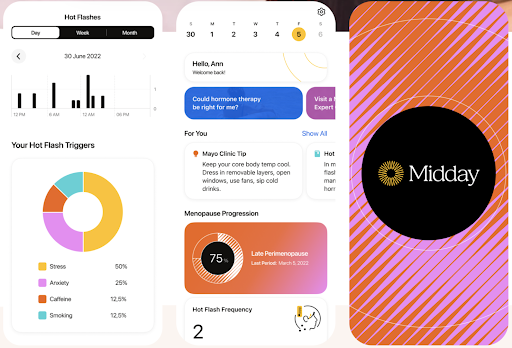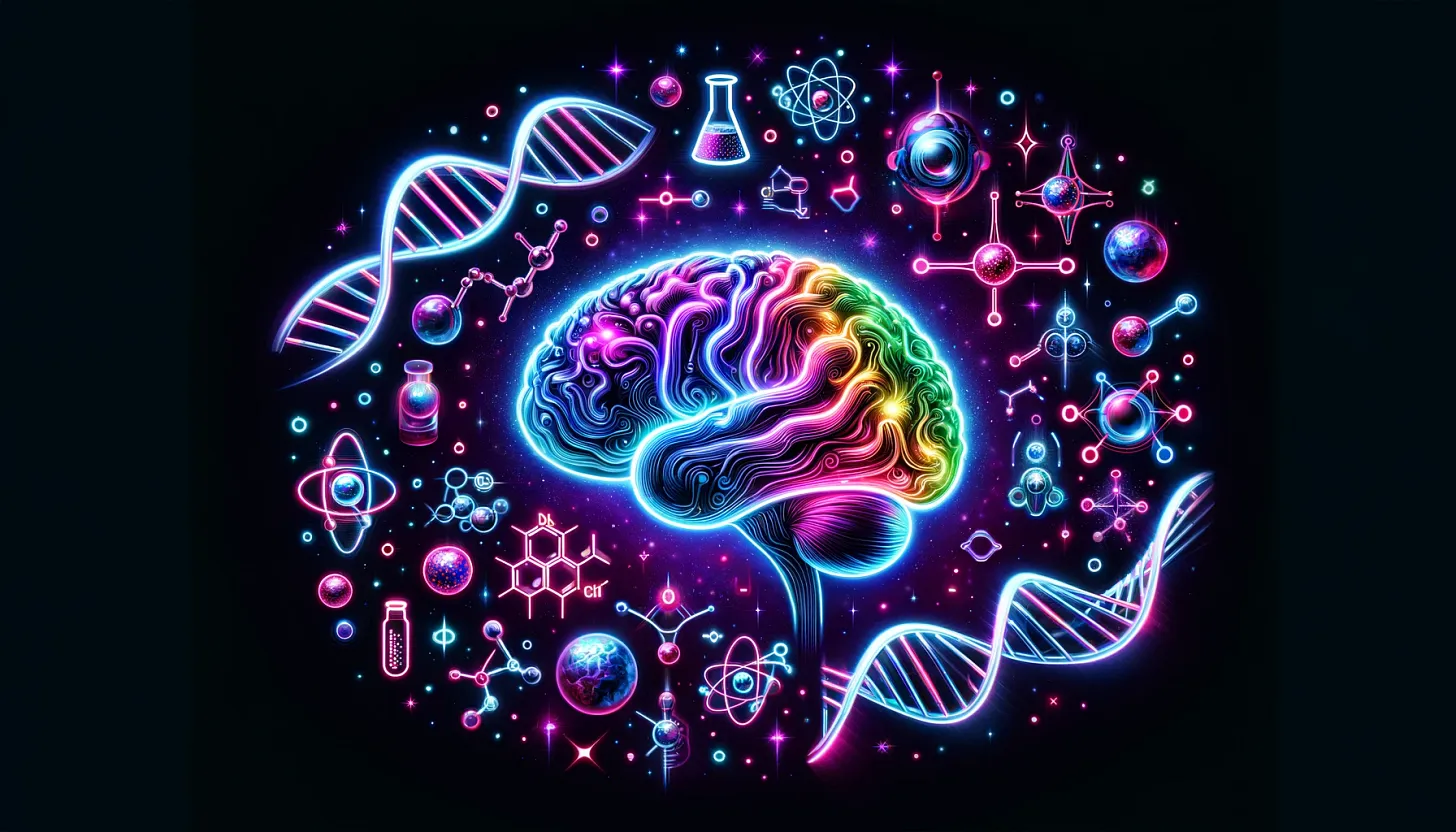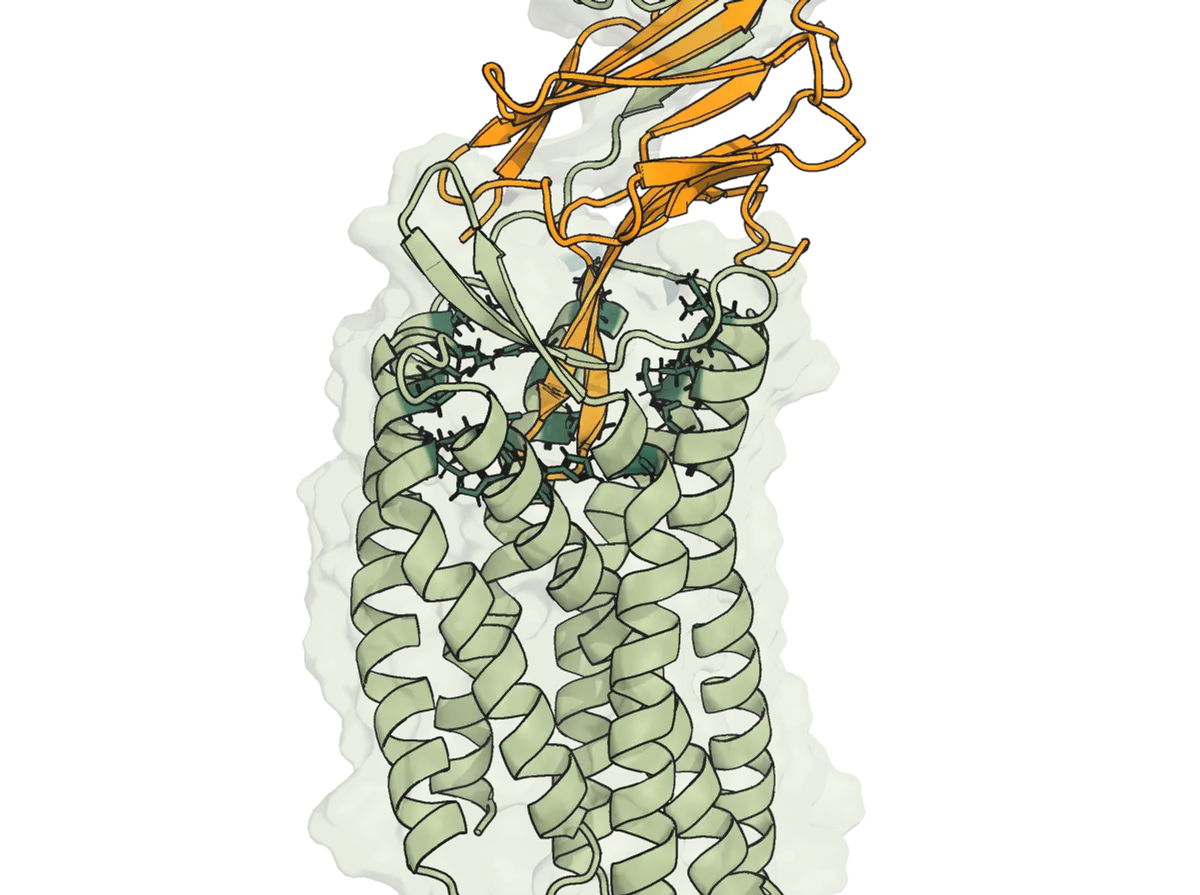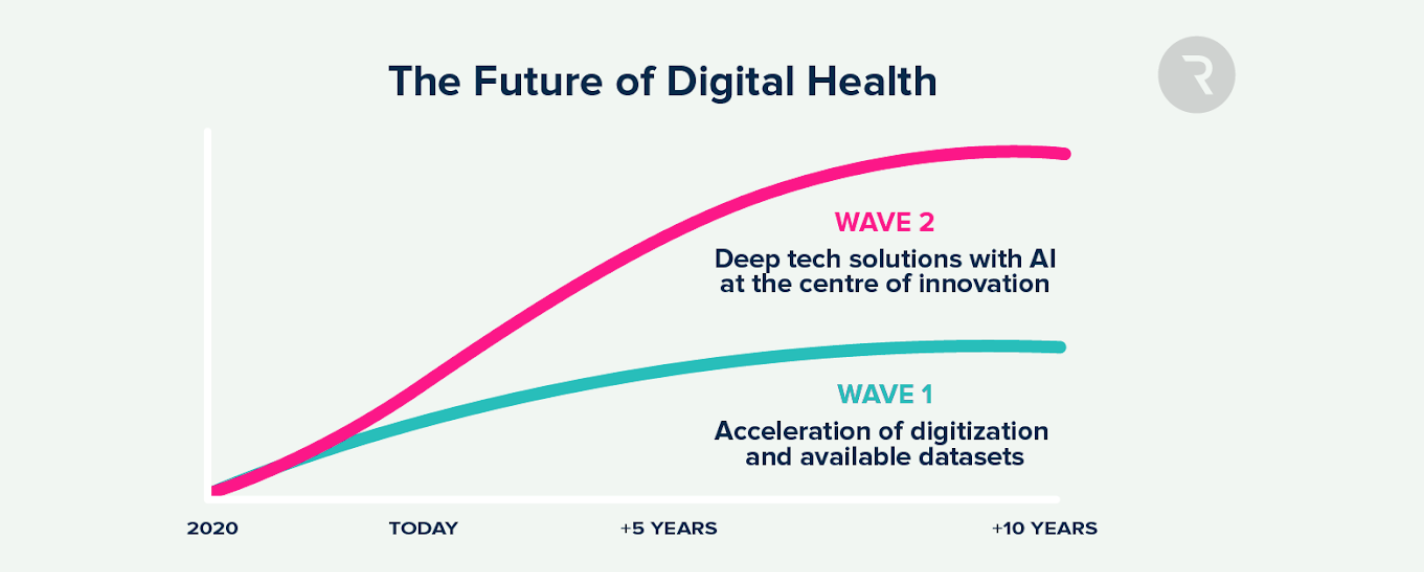Last week Lisa Health launched Midday, an AI-enabled menopause app built in collaboration with Mayo Clinic (see Forbes coverage here). Midday is the first science-backed, AI-enabled platform to serve women as a one-stop solution for menopause and healthy aging. The launch coincided with Lisa Health announcing a $2.5 million seed round led by Radical Ventures.
Menopause impacts 1.2 billion women globally and remains an under-served demographic relative to other sub-sectors within women’s health like pregnancy and fertility. Despite research indicating that menopause severely impacts workplace productivity, this growing cohort of women (with an estimated buying power of $15 trillion) has limited effective solutions at their disposal. A study by Johns Hopkins University found that less than 20% of OB-GYNs received formal training in menopause medicine.
When we looked at companies advancing women’s health, Lisa Health’s evidence-based approach stood out as a clear leader among the few companies looking to address menopause. The team is led by a rare combination of technical, clinical, and commercial experts. CEO and Co-founder Ann Garnier is a seasoned healthcare operator whose companies have exited to McKesson and Optum, and Lisa Health’s Chief Scientific Officer, Massimiliano (Max) de Zambotti, is a Principal Scientist at SRI Biosciences and a leading expert in wearable technology with a specialization in menopause and sleep. The company is collaborating with major medical and research institutions like Mayo Clinic and SRI International and has built a strong portfolio of intellectual property on the top menopause biomarkers.
Through the thoughtful application of artificial intelligence, Lisa Health’s Midday app will personalize every woman’s menopause and aging experience, providing tailored treatment pathways that will improve health outcomes. The platform uses a multi-sensor system for hot flash detection, a hot flash prediction algorithm, and multi-modal sensing of irregular menstrual cycles. Users receive expert medical guidance from Mayo Clinic alongside highly personalized insights, including precision therapeutics unique to their symptomology.
Providing a comprehensive care solution to a traditionally underserved demographic by both the healthcare and technology industries was very much needed. Radical Ventures is excited to join Lisa Health on this journey.
AI News This Week
-
Toronto start-up Cohere is teaching machines to speak our language (Canadian Business)
In the last five years, computers have made significant strides in understanding the nuances of language. Aidan Gomez, Co-founder and CEO of Radical Ventures portfolio company Cohere, played a leading role in achieving this breakthrough. Aidan co-authored the seminal paper Attention is All You Need, uncovering the magic that occurs when a large AI model understands the relationship between words. This Canadian Business story chronicles the amazing growth of Cohere, which was built on the Transformer technology that emerged from Aidan’s research. The feature explores how three young computer scientists created a company with the goal of bringing large language models to any developer in the world without requiring research teams or expensive computing resources. Along the way, Cohere has attracted talent from Deep Mind and Apple and recently opened offices in Palo Alto and London, UK.
-
How three startups working with large language models are thinking about ethics (Morning Brew)
Radical Ventures portfolio company Cohere is also showcased this week for its approach to addressing potential ethical issues that arise with large language models, one of AI’s most transformative developments in recent years. In addition to vetting data sets for toxicity and hate speech, Cohere has a Responsibility Council guiding their model development and a community of developers providing feedback. The company revokes users’ access to the platform if they do not comply with Cohere’s mission and terms of use.
-
Banks turn to AI to help dodge enforcement spotlight (The Wall Street Journal)
Financial institutions and corporations are adopting machine learning to keep up with regulatory expectations to identify criminal activity in transactions. There are currently no mandates to adopt new technology, but The Wall Street Journal predicts lagging institutions may experience pressure to keep up with companies deploying AI solutions that decrease the manual labour and costs associated with compliance departments. Seth DuCharme, a former senior official in the US Justice Department who is now a partner at the law firm Bracewell LLP, comments, “as automation and AI are becoming more expected, enforcers are often willing to give credit to businesses that made an effort, even if a compliance failure ultimately occurs.”
-
Listen: Improving Efficiency of AI for Video Processing – Use Cases and Adoption (The AI in Business Podcast)
No matter what industry you are in, hardware is becoming increasingly relevant. Hardware can reduce the compute and financial cost of data processing, opening new capabilities for businesses to do things they could not do before. Demand for fast computing “at the edge” is also growing. While critical for innovations in self-driving vehicles and medicine, demand from a wide range of consumer and business applications is growing alongside expectations of real-time performance. In this podcast, Arun Iyengar, CEO of Radical Ventures portfolio company Untether AI, discusses how Untether’s chips are running AI inference workloads faster, cooler, and more cost-effectively using at-memory computing. Arun also shares his views on how businesses can make decisions about this space and where the field is headed.
-
How AI will help analyze the first James Webb Space Telescope images (Silicon Republic)
By now, most people have seen the incredible images from the James Webb Space Telescope. The level of detail has far surpassed expectations. These images carry news about the early universe, the birth and death of stars, the collision of galaxies, and the atmospheres of exoplanets. Scientists are using machine learning models to help analyze and classify the vast amounts of data from the telescope. One of these projects is COSMOS-Webb. This is the largest project Webb is undertaking during its first year, an ambitious effort to map the earliest structures in the universe, including half a million galaxies.
Radical Reads is edited by Ebin Tomy.





